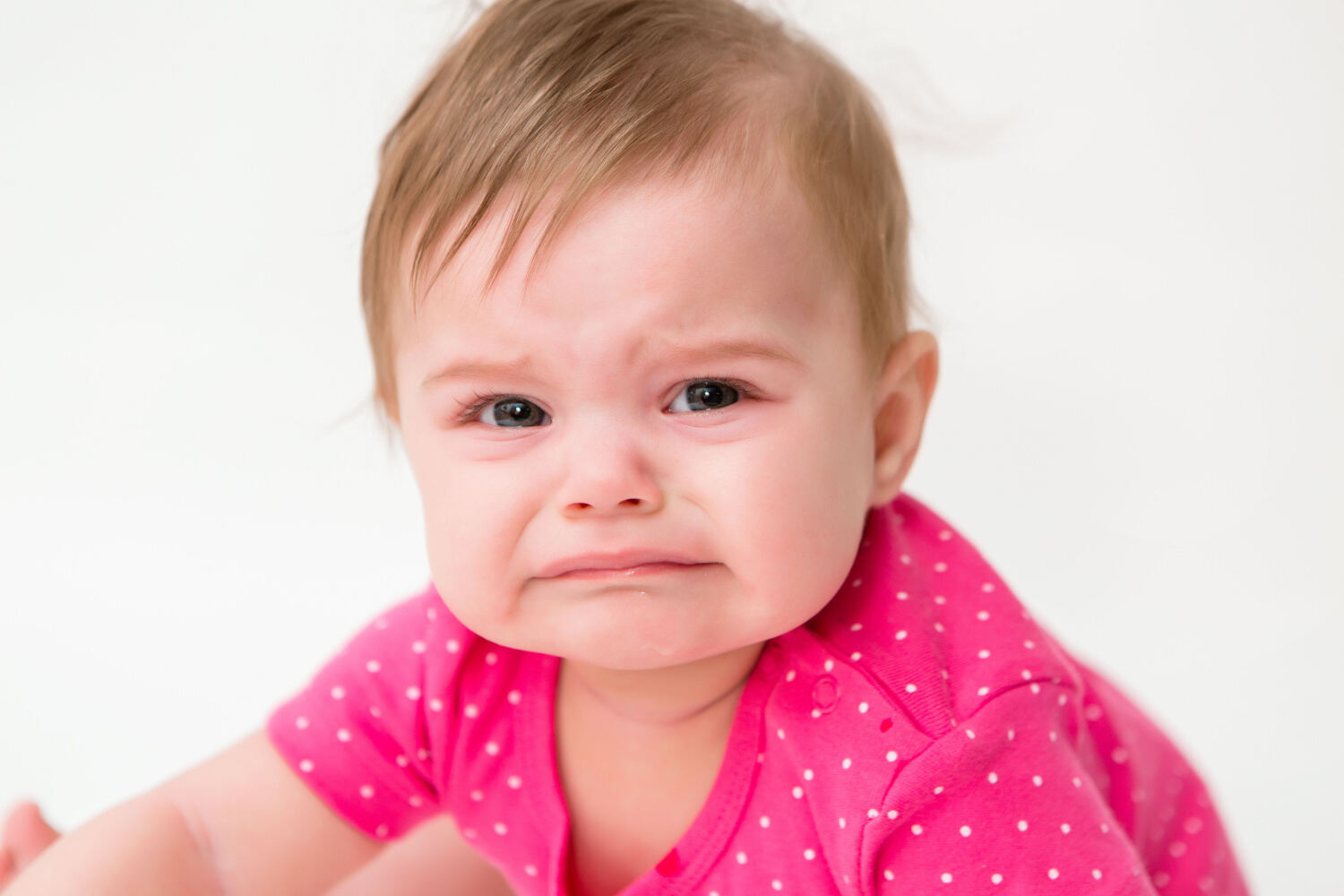
Postnatal Care – A Brief
9 min readWritten by Editorial Team

. Postnatal care, also known as postpartum care, refers to the medical and supportive care provided to a woman and her newborn following childbirth. This period, often referred to as the postpartum period, typically lasts for about six weeks after delivery, although the exact duration may vary depending on individual circumstances.
Postnatal care, also known as postpartum care, refers to the medical and supportive care provided to a woman and her newborn following childbirth. This period, often referred to as the postpartum period, typically lasts for about six weeks after delivery, although the exact duration may vary depending on individual circumstances.
The main objectives of postnatal care are to monitor the health and well-being of the mother and baby, provide support and guidance on infant care and breastfeeding, address any physical or emotional changes experienced by the mother, and promote a smooth transition to motherhood and family life.
In This Article
- Key Aspects Of Postnatal Care
- 12 Frequent Problems of Post Natal Period
- 12 Postpartum Complications
- 14 Do’s During Post Partum
- 14 Don’ts During Postnatal Period
Key Aspects Of Postnatal Care

Postnatal care is a critical phase that requires attention and support to ensure the well-being of both the mother and the newborn. Regular check-ups and open communication with healthcare providers can help identify and address any potential issues early on, promoting a healthy and positive postpartum experience for the mother and her baby.
Here are some key aspects of postnatal care:
- Physical Recovery: During the postnatal period, the mother’s body goes through significant physical changes as it recovers from childbirth. Healthcare providers will monitor her healing process, check for any complications like infections or excessive bleeding, and address any concerns she may have.
- Breastfeeding Support: For mothers who choose to breastfeed, postnatal care includes guidance and support on breastfeeding techniques, establishing a good latch, managing milk supply, and addressing any breastfeeding challenges.
- Emotional Support: The postpartum period can be emotionally challenging for some mothers due to hormonal changes and the adjustment to new motherhood. Healthcare providers, along with family and friends, play a vital role in providing emotional support and identifying signs of postpartum depression or anxiety.
- Infant Care Education: New parents often receive education on newborn care, including diapering, bathing, and recognizing signs of normal development and potential concerns.
- Contraception: Family planning and discussions about contraception may be addressed during postnatal care to help mothers make informed decisions about birth control options.
- Pelvic Floor Exercises: Guidance on pelvic floor exercises (Kegel exercises) may be provided to help strengthen pelvic muscles and aid in recovery.
- Follow-Up Appointments: Postnatal care usually involves follow-up visits with healthcare providers to assess the mother’s and baby’s progress, address any ongoing concerns, and offer necessary immunizations for the newborn.
- Nutrition and Hydration: A well-balanced diet and staying hydrated are crucial during the postnatal period, especially for breastfeeding mothers.
- Rest and Sleep: Adequate rest and sleep are essential for the mother’s recovery. Family members can support her by helping with household chores and caring for the baby.
- Birth Control and Family Planning: Discussions about family planning and birth control options are common during postnatal care, allowing mothers to choose the best option for their future reproductive goals.
12 Frequent Problems of Post Natal Period

The postnatal period, also known as the postpartum period, can be a challenging time for new mothers as they adjust to motherhood and recover from childbirth. It’s important for new mothers to remember that many of these problems are common and usually temporary. Seeking support from healthcare providers, family, and friends can make the postnatal period more manageable and less stressful. If any problems persist or become severe, it’s essential to seek medical advice promptly.
Some common problems experienced during this period include:
- Postpartum Pain: Many women experience physical discomfort after childbirth, such as perineal pain (from tearing or episiotomy), abdominal pain (especially after a cesarean section), and uterine contractions as the uterus shrinks back to its pre-pregnancy size.
- Postpartum Bleeding: Known as lochia, postpartum bleeding is normal after childbirth. However, heavy bleeding or prolonged bleeding may indicate a concern and should be evaluated by a healthcare provider.
- Breastfeeding Difficulties: Some mothers may encounter challenges with breastfeeding, such as latching issues, sore nipples, engorgement, or difficulty with milk supply. Lactation consultants and healthcare providers can offer support and solutions.
- Hormonal Changes: After childbirth, hormone levels fluctuate, which can lead to mood swings, postpartum blues, and in some cases, postpartum depression or anxiety. Emotional support and communication with healthcare providers are essential during this time.
- Perineal Discomfort: If the perineum (the area between the vagina and anus) experiences tears or episiotomy during delivery, it can be sore and uncomfortable. Proper perineal care and pain management techniques are crucial for healing.
- Fatigue and Sleep Deprivation: Taking care of a newborn can be exhausting, leading to sleep deprivation and increased fatigue. Mothers should prioritize rest and accept help from family and friends to get enough rest.
- Body Image Concerns: Many women experience body image changes after childbirth, which can lead to feelings of self-consciousness or insecurity. It’s essential to practice self-compassion and focus on the amazing accomplishment of giving birth.
- Urinary and Bowel Issues: Some women may experience temporary urinary incontinence or difficulty with bowel movements after childbirth. Pelvic floor exercises and maintaining good hydration can help improve these issues.
- Scar Healing (in C-section births): Women who undergo cesarean sections will need to care for their incision site and monitor it for proper healing and any signs of infection.
- Baby Care Challenges: Caring for a newborn can be overwhelming for new parents, especially when they lack experience. Learning to understand the baby’s cues, feeding patterns, and sleep routines can take time.
- Relationship and Intimacy Changes: The dynamic between partners may shift after the arrival of a baby, leading to changes in intimacy and communication. Open and honest discussions can help navigate these adjustments.
- Constipation: Some women may experience constipation after childbirth due to hormonal changes and pain medications. Staying hydrated and consuming fiber-rich foods can help alleviate this issue.
12 Postpartum Complications

Postpartum complications are medical issues that can occur in the weeks following childbirth. While most women recover without any major problems, some may experience certain complications that require medical attention. It’s essential for women to be aware of the signs and symptoms of postpartum complications and to seek medical attention promptly if they experience any concerning issues. Regular postpartum check-ups with healthcare providers can also help detect and address potential complications early on. Early intervention is crucial to ensure a smooth recovery and overall well-being for both the mother and the baby.
Here are some common postpartum complications:
- Postpartum Hemorrhage (PPH): This is excessive bleeding after childbirth, typically occurring within 24 hours but can also happen up to six weeks post-delivery. PPH can be caused by the uterus not contracting properly after the placenta is delivered or due to retained placental fragments.
- Infections: Postpartum infections can affect the uterus (endometritis) or the incision site in the case of cesarean section (surgical site infection). Symptoms may include fever, abdominal pain, and foul-smelling discharge.
- Urinary Tract Infections (UTIs): UTIs can develop postpartum due to catheter use during labor or delivery, or from hormonal changes and urinary stasis after birth.
- Deep Vein Thrombosis (DVT) and Pulmonary Embolism (PE): DVT is a blood clot that forms in the legs, and if it travels to the lungs, it becomes a PE. Women who have had prolonged bed rest during childbirth or a cesarean section have a higher risk of developing blood clots.
- Perineal Pain and Tears: Tears or episiotomies in the perineum can cause discomfort and pain, especially during the healing process.
- Puerperal Mastitis: This is a breast infection that can occur when milk ducts become blocked, leading to breast pain, redness, and fever.
- Postpartum Depression (PPD) and Anxiety: Hormonal changes, sleep deprivation, and the stress of caring for a newborn can contribute to the development of postpartum mood disorders like PPD and anxiety.
- Postpartum Thyroiditis: Some women may experience inflammation of the thyroid gland after childbirth, leading to temporary hyperthyroidism followed by hypothyroidism.
- Symphysis Pubis Dysfunction (SPD): Also known as pelvic girdle pain, SPD can cause pain and instability in the pelvic region after childbirth.
- Wound Complications: Cesarean section or episiotomy incisions may become infected or heal poorly.
- Anemia: Some women may experience postpartum anemia due to blood loss during delivery.
- High Blood Pressure and Pre-eclampsia: Women who had pregnancy-induced hypertension or pre-eclampsia may continue to experience high blood pressure postpartum.
14 Do’s During Post Partum

The postpartum period can be both rewarding and challenging. By taking care of yourself, seeking support, and following these “do’s,” you can enhance your postpartum experience and ensure a healthy start to motherhood. During the postpartum period, also known as the postnatal period or the “fourth trimester,” new mothers require special care and attention as they recover from childbirth and adjust to motherhood.
Here are some essential “do’s” to promote a healthy and positive postpartum experience:
- Rest and Recover: Prioritize rest and allow your body to heal after childbirth. Sleep when the baby sleeps and don’t hesitate to ask for help with household chores or caring for the baby.
- Stay Hydrated and Eat Nutritious Foods: Drink plenty of water and focus on a well-balanced diet to support your body’s healing process and provide nourishment for breastfeeding if applicable.
- Accept Help and Support: Don’t be afraid to accept help from family and friends. Whether it’s assistance with cooking, cleaning, or baby care, having a support system can make a significant difference during this time.
- Practice Gentle Exercises: Engage in gentle exercises approved by your healthcare provider, such as pelvic floor exercises and walking, to promote circulation and recovery.
- Attend Postpartum Check-ups: Attend all scheduled postpartum check-ups with your healthcare provider to monitor your physical recovery and address any concerns.
- Bond with Your Baby: Spend quality time bonding with your baby through skin-to-skin contact, cuddling, and talking to them. Bonding is essential for your baby’s development and emotional well-being.
- Seek Help for Breastfeeding: If you choose to breastfeed and encounter challenges, seek assistance from lactation consultants or breastfeeding support groups.
- Practice Self-Care: Take time for self-care activities that you enjoy, such as taking a warm bath, reading, or going for a short walk. Taking care of yourself is vital for your overall well-being.
- Monitor Emotional Health: Pay attention to your emotional well-being and seek help if you experience signs of postpartum depression or anxiety. Talk openly about your feelings with your partner, friends, or healthcare provider.
- Be Kind to Yourself: Give yourself grace and don’t expect everything to be perfect. It’s normal to experience a range of emotions and challenges during the postpartum period.
- Stay Connected with Your Partner: Communicate openly with your partner about your feelings, concerns, and needs. Work together to share baby care responsibilities and support each other through this transition.
- Prepare for Intimacy: If you’ve had a vaginal delivery, discuss with your healthcare provider when it’s safe to resume sexual activity. Communicate with your partner about any concerns or discomfort.
- Follow Postpartum Exercise Guidelines: If you plan to resume more intense physical activity, consult your healthcare provider to ensure you follow appropriate guidelines for your postpartum recovery.
- Be Patient with Your Body: Remember that it took nine months for your body to change during pregnancy, and it will take time to recover and adjust after childbirth. Be patient with yourself and give your body the time it needs.
14 Don’ts During Postnatal Period

During the postpartum period, there are certain “don’ts” to keep in mind to ensure a healthy and smooth recovery. These guidelines are designed to promote healing, reduce potential complications, and support the well-being of both the mother and the baby.
Here are some important “don’ts” during postpartum:
- Don’t Overexert Yourself: Avoid strenuous physical activities or heavy lifting during the initial weeks after childbirth. Give your body time to heal and recover.
- Don’t Skip Meals or Hydration: It’s essential to eat regular, nutritious meals and stay hydrated, especially if you are breastfeeding. Skipping meals can affect your energy levels and milk supply.
- Don’t Neglect Your Emotional Health: Pay attention to your emotional well-being and seek help if you experience feelings of sadness, anxiety, or depression. Don’t hesitate to talk to your healthcare provider about any emotional challenges you may be facing.
- Don’t Isolate Yourself: Reach out to your support system, family, and friends. Isolating yourself can exacerbate feelings of loneliness and overwhelm.
- Don’t Ignore Signs of Infection: If you notice any signs of infection, such as fever, redness, or foul-smelling discharge, contact your healthcare provider immediately.
- Don’t Compare Yourself to Others: Every postpartum experience is different, and comparing yourself to others can add unnecessary stress. Focus on your own recovery and journey.
- Don’t Start Intense Exercise Too Soon: Avoid high-impact or intense exercises until you get clearance from your healthcare provider. Prematurely starting intense workouts can hinder healing.
- Don’t Neglect Birth Control: If you wish to avoid pregnancy soon after childbirth, discuss birth control options with your healthcare provider and choose a suitable method.
- Don’t Overload Your Schedule: Give yourself time to adjust to your new role as a mother. Avoid overloading your schedule with social commitments or unnecessary tasks.
- Don’t Delay Seeking Help: If you experience any health concerns, emotional distress, or challenges with breastfeeding, don’t hesitate to seek help from your healthcare provider or other professionals.
- Don’t Neglect Sleep: Sleep is essential for your physical and emotional recovery. Prioritize getting enough rest, and take naps whenever possible.
- Don’t Be Too Hard on Yourself: Motherhood comes with its challenges, and it’s normal to make mistakes or feel overwhelmed. Be kind to yourself and remember that you’re doing your best.
- Don’t Smoke or Use Recreational Drugs: Avoid smoking or using recreational drugs, as they can negatively impact your health and your baby if you are breastfeeding.
- Don’t Bottle Up Your Feelings: Communicate openly with your partner and loved ones about your feelings, concerns, and needs. Sharing your emotions can help you feel supported and understood.
In conclusion, postpartum is a critical and sensitive phase in a woman’s life that requires attention, support, and understanding. After childbirth, mothers undergo physical and emotional changes as they recover and adapt to their new roles as caregivers. Proper postpartum care is essential to promote the well-being of both the mother and the newborn. Key aspects of postpartum care include monitoring the mother’s physical recovery, addressing any complications that may arise, providing guidance and support for breastfeeding, offering education on infant care, and monitoring the baby’s growth and development. Emotional support is also crucial during this time, as hormonal changes and the challenges of caring for a newborn can lead to mood swings and postpartum mood disorders.

Editorial Team,
With a rich experience in pregnancy and parenting, our team of experts create insightful, well-curated, and easy-to-read content for our to-be-parents and parents at all stages of parenting.Read more.
Responses (0)
Want curated content sharply tailored for your exact stage of parenting?
Related articles

Clinginess in Babies – When, How and Why

Tips and Ideas for Selecting Baby’s First Birthday Dress for Girls

Psoriasis and Breastfeeding – Is it Safe, Treatment & Tips to Manage

Top Activities For a 6 Month Old Baby – Benefits and Tips For Parents

Top 100 Super Sweet and Lovely Baby Smile Quotes

Stress in Babies – Causes & Prevention
Sponsored content
Discover great local businesses around you for your kids.
Get regular updates, great recommendations and other right stuff at the right time.





